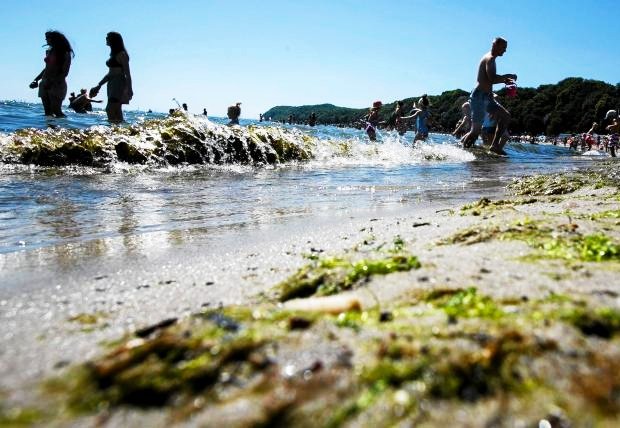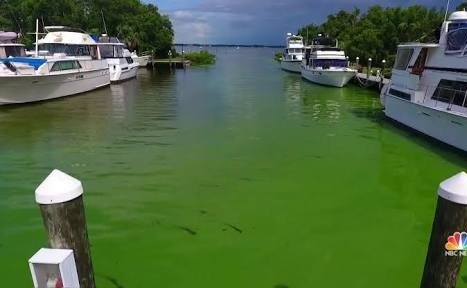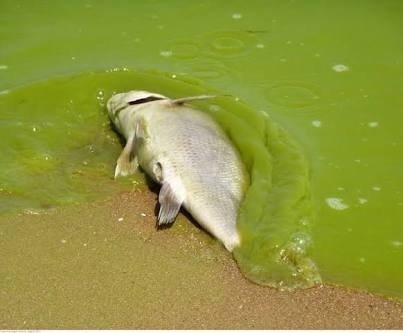A huge bloom of toxic algae has spread in the Baltic Sea, forcing people off beaches but delighting scientists who research cancer and antibiotics.

The blue-green algae or cyanobacteria is primarily caused by the excess of nutrients, such as nitrogen and phosphorus used in food production, in the water.
Exceptionally hot weather and a lack of wind have exacerbated the effect, scientists say. Finnish Meteorological Institute said that this July was the hottest on record.

"The environment is giving us back what we have put into it, so it works as a kind of boomerang," said Hanna Mazur-Marzec, a professor at the Polish Academy of Sciences' Oceanology Institute in Sopot on the Baltic Sea's southern shore.
The Finnish environment institute SYKE said the outbreak, which has hit particularly hard around the Gulf of Finland and stretches down to Poland's shores, is among the worst in the past decade.
"In the lakes, we've had a five-week period that's more extensive than the average in the last 20 years," SYKE said. "Climate change and warming in the Baltic Sea area and lakes will increase the risk of cyanobacterial blooms."
Cyanobacteria toxins are a risk to the marine ecosystem - especially for mussels and the flounder fish - and also pose threat to human health, SYKE said.
People in Poland, Lithuania and Sweden have been advised by the authorities not to swim in waters where the algae is blooming.

"We are here until Saturday and it is a real pity that we are not allowed to swim in the Baltic Sea but what can we do?", said Bron Starby, a tourist from Sweden, who is spending his holidays in Sopot, a popular resort in Poland.
But some scientists are pleased because cyanobacteria are known for being a source of unique compounds that provide a means of studying substances that bacteria will be sensitive to in order to beat the growing prevalence of bacterial resistance.
Hi! I am a robot. I just upvoted you! I found similar content that readers might be interested in:
https://www.reuters.com/article/us-environment-baltic/toxic-algae-spreads-in-baltic-waters-in-biggest-bloom-in-years-idUSKBN1KM5RX
Downvoting a post can decrease pending rewards and make it less visible. Common reasons:
Submit
yes its a very bad for nature.
Downvoting a post can decrease pending rewards and make it less visible. Common reasons:
Submit